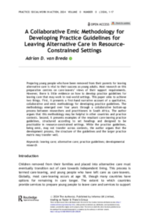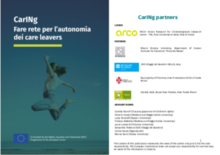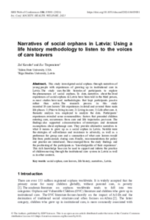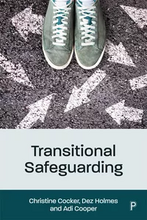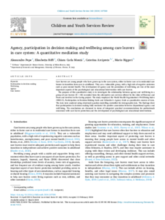Displaying 31 - 40 of 991
This South Africa-based paper aims to provide practice guidelines for leaving care that would be useful in real-world settings.
This workshop explores why it is important to support care leavers networks, and how these networks can be supported. The workshop was designed and facilitated by care leavers, with presentations from a regional network working across Africa, and networks in Uganda and Zimbabwe.
In this study the authors explored the coping resources and assets of care leavers during and following the pandemic from the perspective of 44 care leavers in Israel aged 18–29.
The aim of this empirical study was to analyse the relevance of long-term care solutions implemented in Poland for children leaving foster care, from the perspective of professional caregivers of the process of becoming independent.
In this video, Tamara Mwale of Alliance for Children Everywhere (ACE) Zambia shares a story of reintegration. At ACE, whenever possible, the team seeks to reintegrate children with biological family.
CarINg aims at helping girls and boys in the alternative care system (care leavers) become protagonists of their own future by making them feel part of a welcoming community.
This study investigated social orphans through narratives of young people with experiences of growing up in institutional care in Latvia. The study uses the life histories of participants to explore the phenomenon of social orphans.
This book sets out the case for Transitional Safeguarding, a new approach to protection and safeguarding designed to address the needs and behaviours of young people aged 15-24 who are falling between gaps in current global systems, with often devastating results. While the book addressed the gaps in the current system in the UK, the lessons have global application and the authors outlines how the specific needs of young people can be met through this approach.
This convergent mixed methods study builds knowledge surrounding preparedness among a sample of young adults with histories in out-of-home care in the U.S.
The purpose of this quantitative study is to investigate the relationship between agency and well-being in a group of care leavers (N = 48) recruited from the alternative care services offered by the cities of Florence and Prato in Italy and involved in the Caring project.

